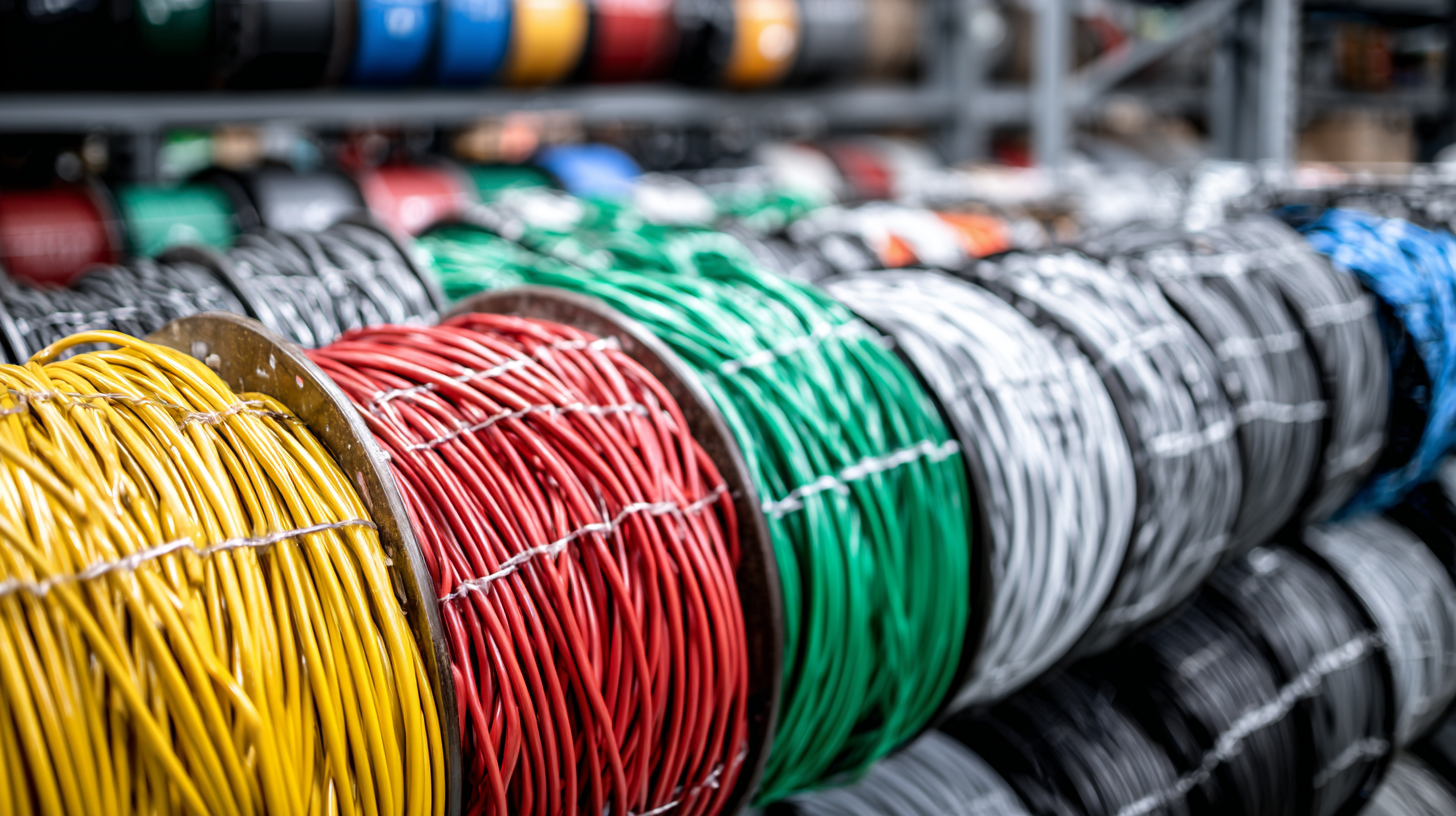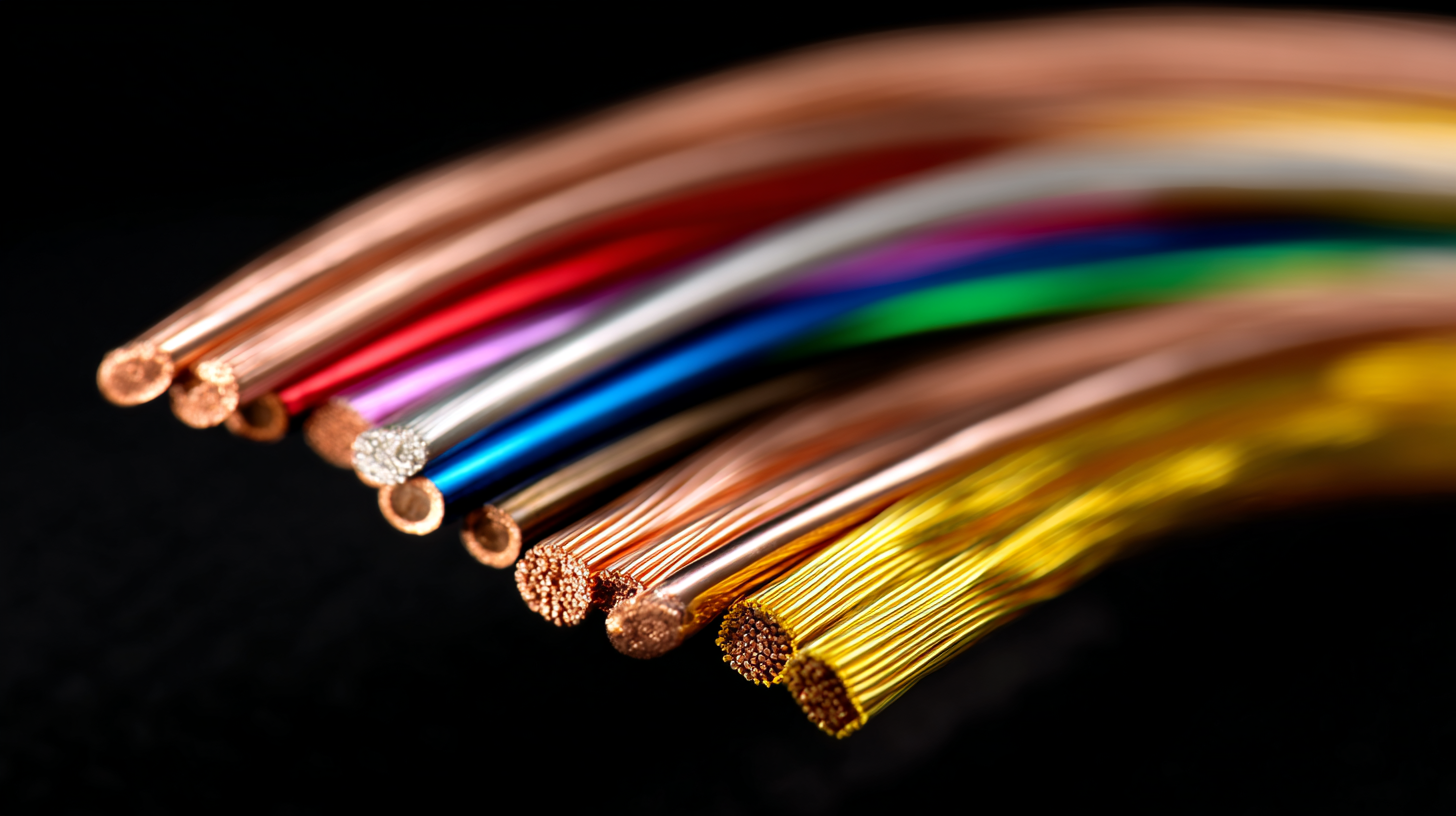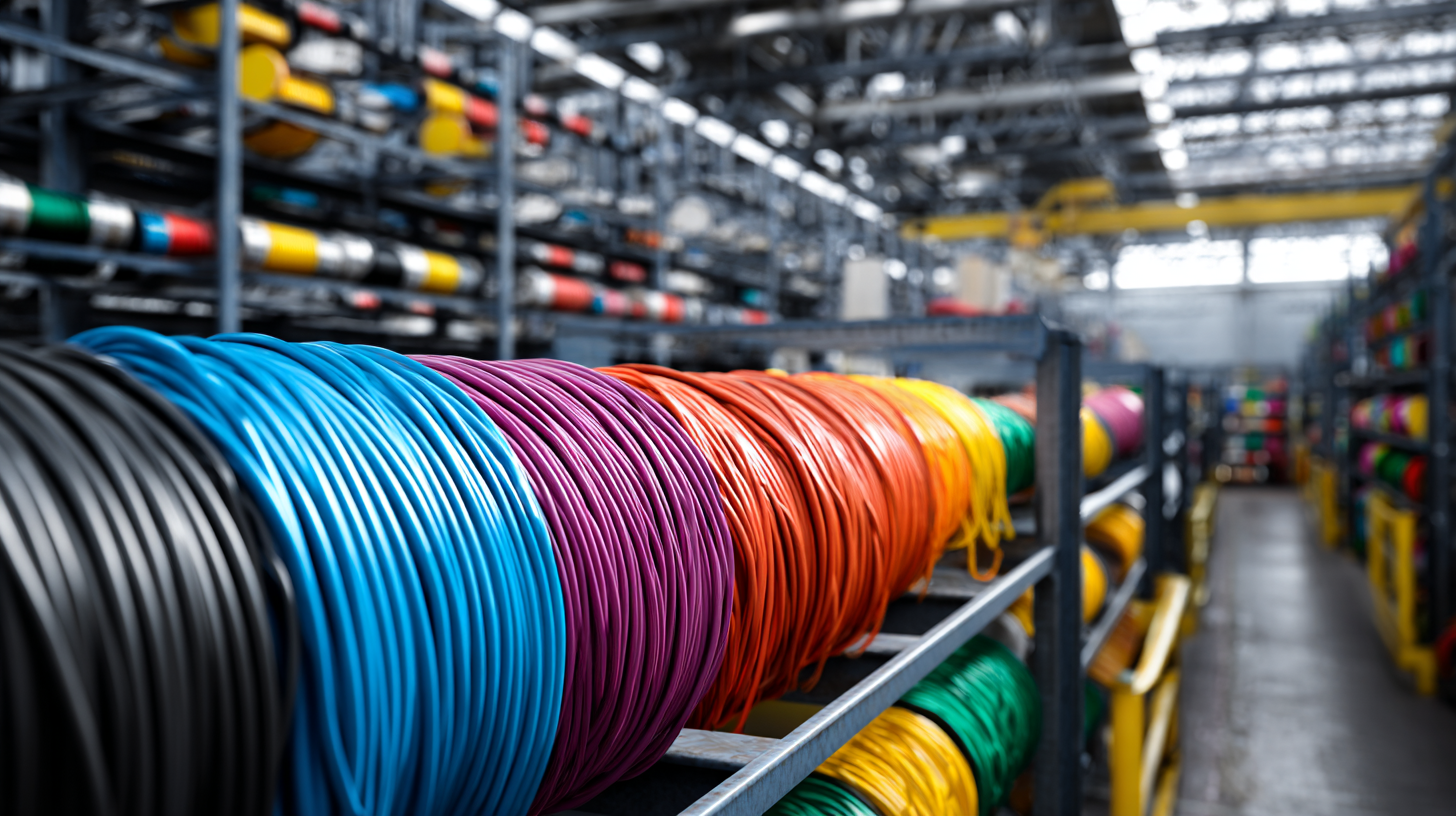Solutions for Sourcing the Best Automotive Wire for Your Global Supply Chain
In the rapidly evolving automotive industry, the significance of sourcing high-quality automotive wire cannot be overstated. As vehicles become more sophisticated, the demand for reliable and durable wire solutions to support advanced electrical systems is on the rise. According to a recent market report by Mordor Intelligence, the global automotive wire harness market is projected to grow at a CAGR of 5.4% from 2021 to 2026, driven by the increasing adoption of electric vehicles and the integration of emerging technologies. This growth underscores the necessity for manufacturers to procure automotive wire that adheres to stringent industry standards, ensuring both performance and safety. By navigating global supply chains efficiently, businesses can leverage the latest innovations and maintain competitive advantages in this dynamic market.

Identifying Quality Automotive Wire Manufacturers in China for Global Supply
When sourcing automotive wire for a global supply chain, identifying quality manufacturers is crucial, especially in a market as expansive as China. Recent industry reports indicate that nearly 30% of the world's automotive wiring harnesses are produced in China, making it a key player in the automotive supply chain. To ensure compliance with international standards, manufacturers in China must adhere to certification processes such as ISO/TS 16949, which focuses on quality management systems in the automotive sector.
Tips: When evaluating potential manufacturers, prioritize those with proven experience in automotive components and robust quality assurance programs. Check for customer testimonials and case studies that demonstrate their reliability and capacity to meet large-scale demands. Additionally, consider manufacturers with a strong R&D department, as innovation plays a pivotal role in producing high-quality wire that meets the specific requirements of modern vehicles.
Moreover, collaborating with suppliers that utilize eco-friendly materials can enhance your brand's sustainability profile. A recent report highlighted that sustainable practices in the manufacturing of automotive components can reduce production costs by up to 23%. Look for suppliers that prioritize environmentally-friendly manufacturing processes and are transparent about their sourcing methods.
Evaluating the Reliability and Certifications of Chinese Automotive Wire Suppliers
When sourcing automotive wire for a global supply chain, evaluating the reliability and certifications of suppliers—particularly those based in China—is critical. The automotive industry is highly regulated, and ensuring that suppliers can meet international standards is paramount to maintaining the quality and safety of the final product. Suppliers should possess relevant certifications such as ISO/TS 16949, which is specifically designed for the automotive sector. This certification not only demonstrates a supplier's commitment to quality management practices but also indicates their ability to provide reliable products consistently.
In addition to certifications, it’s important to assess the supplier's track record and reputation within the industry. Investigating customer feedback, product testing results, and compliance with local and international regulations can provide deeper insight into a supplier's reliability. Engaging in direct communication with suppliers to discuss their quality assurance processes and any potential challenges they face can further clarify their operational capabilities. By prioritizing these evaluations, businesses can mitigate risks in their supply chain and ensure that they are partnering with suppliers who uphold the highest standards in automotive wire manufacturing.
Solutions for Sourcing the Best Automotive Wire for Your Global Supply Chain
| Supplier Location | Wire Type | Certification Status | Monthly Production Capacity | Lead Time | Quality Control Measures |
|---|---|---|---|---|---|
| China | Copper Wire | ISO 9001, TS 16949 | 500,000 meters | 4 weeks | In-house lab testing, Third-party inspections |
| China | Aluminum Wire | UL Listed, RoHS Compliant | 300,000 meters | 6 weeks | Quality audits, Material traceability |
| China | Multi-stranded Wire | ISO 14001, IATF 16949 | 400,000 meters | 5 weeks | Process control, Final inspection |
Navigating Challenges in Automotive Wire Sourcing for International Markets
Sourcing automotive wire for international markets presents unique challenges that manufacturers must navigate carefully to ensure a robust supply chain. One primary obstacle is compliance with varying regional regulations. Automotive wires must meet specific industry standards, such as UL in the United States or CE in Europe. Staying informed about these regulations and enabling compliance can be daunting, especially for businesses operating in multiple jurisdictions. Engaging with local experts or consultants who understand these nuances can help streamline the process and reduce the risk of costly fines or production delays.
Another significant challenge lies in the volatility of global supply chains, particularly influenced by geopolitical factors, trade agreements, and fluctuating ingredient costs. Sourcing materials such as copper and aluminum, which are essential for wire production, can be unpredictable. To mitigate these risks, companies must develop robust relationships with multiple suppliers and consider diversifying their sourcing countries. Additionally, investing in supply chain visibility tools can provide real-time data, helping businesses adapt quickly to market shifts and maintain production continuity in an ever-changing landscape.
Automotive Wire Sourcing Challenges and Solutions
Cost-Effective Strategies for Importing Automotive Wire from China
When sourcing automotive wire for your global supply chain, importing from China can be a cost-effective strategy. China is renowned for its robust manufacturing capabilities, which translate into competitive pricing and high production volumes. By establishing a partnership with reliable Chinese suppliers, businesses can benefit from lower material costs while maintaining quality standards. Bulk purchasing not only reduces the price per unit but also minimizes shipping costs when negotiated effectively.
To further enhance cost-effectiveness, businesses should consider optimizing their logistics processes. This involves working with freight forwarders who have experience in the automotive sector and can offer tailored solutions for shipping automotive wire. Additionally, leveraging advanced technologies such as supply chain management software can help track orders and inventory, ensuring timely delivery and reducing warehousing costs. By integrating these strategies, companies can streamline their procurement processes, fostering a smoother supply chain while maximizing savings.

Ensuring Compliance with Global Standards for Automotive Wire Products
When sourcing automotive wire for a global supply chain, compliance with international standards is crucial. Manufacturers must ensure that their products meet specific regulations such as the ISO, UL, and SAE standards. These standards not only dictate material requirements but also address safety, performance, and environmental considerations. Adhering to these guidelines helps to minimize risks associated with non-compliant products, which can lead to costly recalls and reputational damage.
In addition to regulatory compliance, it's essential for suppliers to stay updated on changing standards and certifications across various regions. Different markets may have unique requirements; for instance, the European Union has stringent rules for chemical substances and their effects on both the environment and human health. By partnering with reliable suppliers who have a robust understanding of these requirements, companies can ensure that their automotive wires are not only compliant but also high-quality, fostering trust among manufacturers and consumers worldwide.

